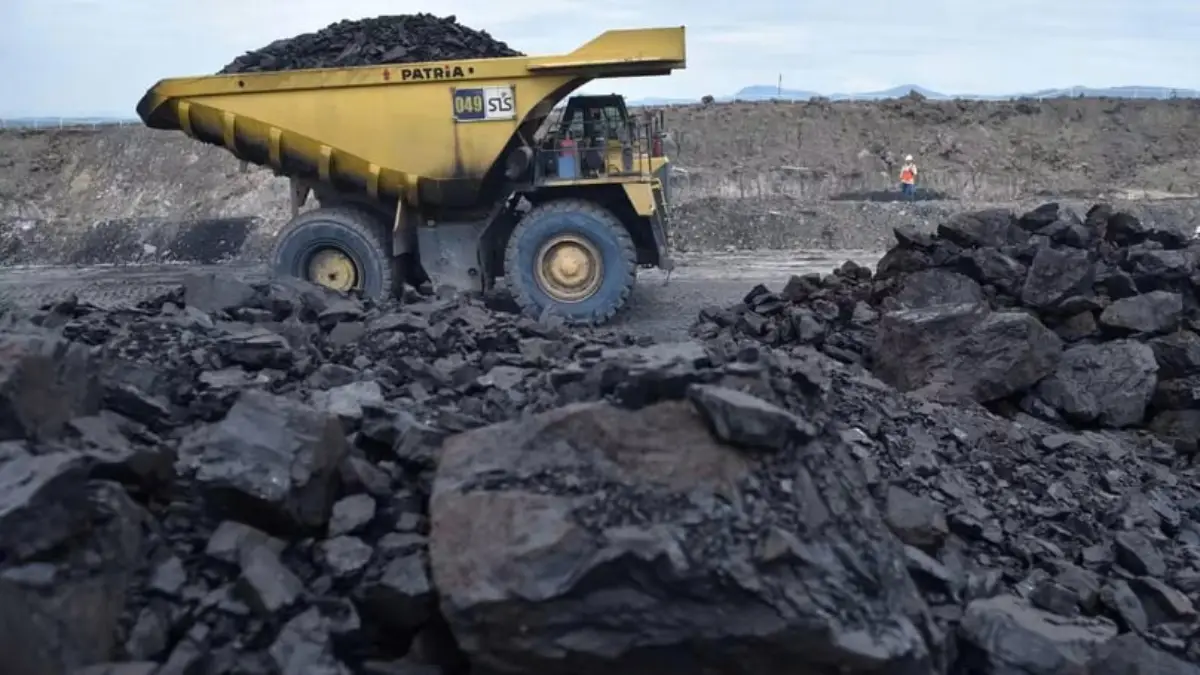Indonesia, one of the world’s largest coal exporters, is facing a critical juncture as its key markets in China and India pivot toward higher-grade coal and bolster domestic production. With export volumes to these Asian giants declining sharply in the first five months of 2025, Indonesian miners are redirecting their focus to domestic demand while urging the government to ease regulatory burdens that exacerbate an already strained industry.
Export Markets Shrink as Competition Intensifies
In the January to May period of 2025, Indonesia’s thermal coal exports to China and India dropped by 12.3 percent and 14.3 percent, respectively, compared to the previous year. This decline outpaces the overall reduction in coal imports by these countries, with China’s imports falling by 10 percent and India’s by just over 5 percent. The shift is driven by a growing preference for coal with higher calorific value (HCV), which offers more energy per dollar spent, prompting buyers to turn to alternative suppliers such as Mongolia, South Africa, Kazakhstan, Colombia, and Mozambique.
“HCV coal is more expensive but yields more energy for every dollar spent” said Vasudev Pamnani, director at Indian coal trader i-Energy Natural Resources, in an interview with Reuters. He added that one million tons of HCV coal can replace up to 1.5 million tons of Indonesian supply, underscoring the competitive disadvantage faced by Indonesia’s predominantly medium and lower calorific value (MCV and LCV) coal offerings.
China, which produced a staggering 4.9 billion tons of coal in 2024, and India, surpassing 1 billion tons, are increasingly self-reliant, further squeezing Indonesian exports. Additionally, discounted Russian coal and price-competitive Mongolian supplies are eroding Indonesia’s market share in the MCV and LCV segments. Mongolia’s coal exports to China surged by 44.8 percent in the first five months of 2025, while South Africa’s shipments to India rose by 26.1 percent, highlighting the intensifying global competition.
Global Pressures and Regional Dynamics
Beyond shifting buyer preferences, broader geopolitical and economic factors are dampening demand for Indonesian coal. Global trade tensions, particularly driven by U.S. tariff policies, have slowed regional economic growth in Asia, softening the appetite for energy commodities. “The decline in coal demand is not just regional, it is global” said Ardhi Ishak Kosen, head of industrial relations at the Association of Indonesian Mining Professionals (Perhapi), speaking to The Jakarta Post on June 27, 2025.
Indonesia’s national coal output is projected to fall from 836 million tons in 2024 to below 800 million tons in 2025, according to industry estimates. However, overproduction remains a concern, as domestic demand is expected to reach only 250 to 260 million tons this year, up from 233 million tons in 2024. “Mining equipment is underutilized, some machines stand idle, while others run on reduced hours or not at all” said Ardhi, pointing to operational inefficiencies that compound the industry’s challenges.
Domestic Pivot: Smelting and Power Sectors Offer Lifelines
With export markets shrinking, Indonesian coal miners are increasingly turning to the domestic market to offset losses. According to Gita Mahyarani, acting executive director of the Indonesian Coal Mining Association (APBI), the rapidly expanding mineral smelting industry is becoming a key consumer, expected to absorb 31.2 percent of the 2025 domestic market obligation (DMO). Electricity generation remains the dominant sector, accounting for 58 percent of the DMO, but smelters offer better profit margins compared to the heavily regulated local power utility market.
Domestic coal deliveries now constitute 48.6 percent of national supply, the highest share in over a decade, based on government data reviewed by Reuters. This shift reflects a strategic realignment as miners prioritize local contracts over volatile international demand. Gita emphasized that producers are also focusing on Southeast Asian countries still reliant on MCV coal, where proximity provides a logistical advantage and demand for coal-fired power plants remains robust. “Their proximity offers a logistical advantage” she told The Jakarta Post on June 27, 2025.
Cost efficiency has emerged as a top priority for mining firms striving to maintain competitiveness amid falling global prices. Miners are tightening operational costs and reevaluating capital expenditures to weather the downturn, but many argue that government policies are adding unnecessary financial strain.
Regulatory Hurdles Hamper Recovery Efforts
Industry leaders have called for the rollback of regulations they deem burdensome, such as the mandatory use of B40 blended biodiesel and the requirement to retain a portion of export foreign exchange earnings (DHE) within Indonesia. Ardhi from Perhapi argued that such policies increase operational costs at a time when miners are already grappling with shrinking profit margins.
Another point of contention is the coal reference price (HBA), set by the government to prevent sales below domestic benchmarks. Introduced on March 1, 2025, the HBA has been criticized for remaining higher than prevailing global market rates, potentially contributing to the decline in exports. According to a Bloomberg report dated May 27, 2025, some buyers have flagged the HBA as a deterrent. For the second half of June 2025, the Energy and Mineral Resources Ministry set the HBA at US$98.61 per ton, a 2.33 percent decrease from US$100.97 in the first half of the month, and a 23 percent drop since the policy’s implementation.
However, Surya Herjuna, director of coal business development at the Energy and Mineral Resources Ministry, has downplayed the impact of the HBA on export declines. He noted that domestic sales also fell, dropping to 12 million tons in the first quarter of 2025 from 16 million tons in the same period last year, attributing the slowdown to geopolitical tensions rather than pricing policies.
Environmental and Economic Implications
The challenges facing Indonesia’s coal industry are not merely economic but also carry significant environmental implications. Coal remains a cornerstone of the country’s energy mix, with coal-fired power plants like the Suralaya facility in Banten province symbolizing both industrial might and environmental concern. As domestic consumption rises, particularly for electricity and smelting, questions persist about Indonesia’s commitment to reducing greenhouse gas emissions under global climate agreements.
At the same time, the pivot to domestic markets may provide short-term relief but is unlikely to fully offset the loss of export revenue. With local demand growth limited, as highlighted by industry experts, overproduction risks creating a surplus that could further depress prices and strain mining operations. The underutilization of equipment and reduced operational hours signal deeper structural issues that may require more than regulatory tweaks to resolve.
Looking Ahead: A Balancing Act
As Indonesia’s coal industry navigates this turbulent landscape, the balance between sustaining economic contributions and adapting to global energy transitions remains delicate. Miners are caught between the immediate need to secure domestic markets and the long-term imperative to diversify energy sources. Meanwhile, the government faces pressure to support an industry that employs thousands and fuels national development, without alienating international partners pushing for cleaner energy alternatives.
The coming months will test the resilience of Indonesian coal producers as they grapple with shrinking export opportunities, regulatory constraints, and the specter of global trade uncertainties. Whether strategic pivots to smelting and regional markets can stabilize the sector, or whether broader reforms are needed, remains an open question for policymakers and industry stakeholders alike.















